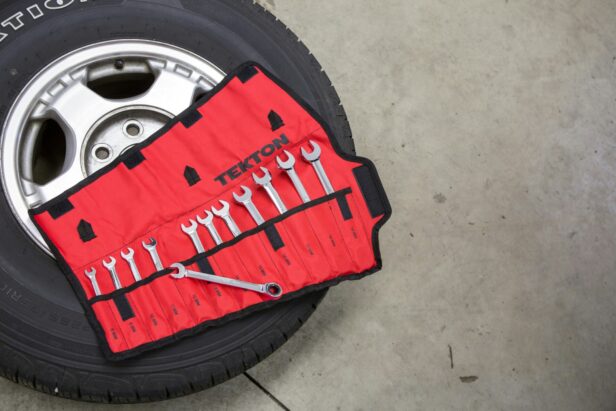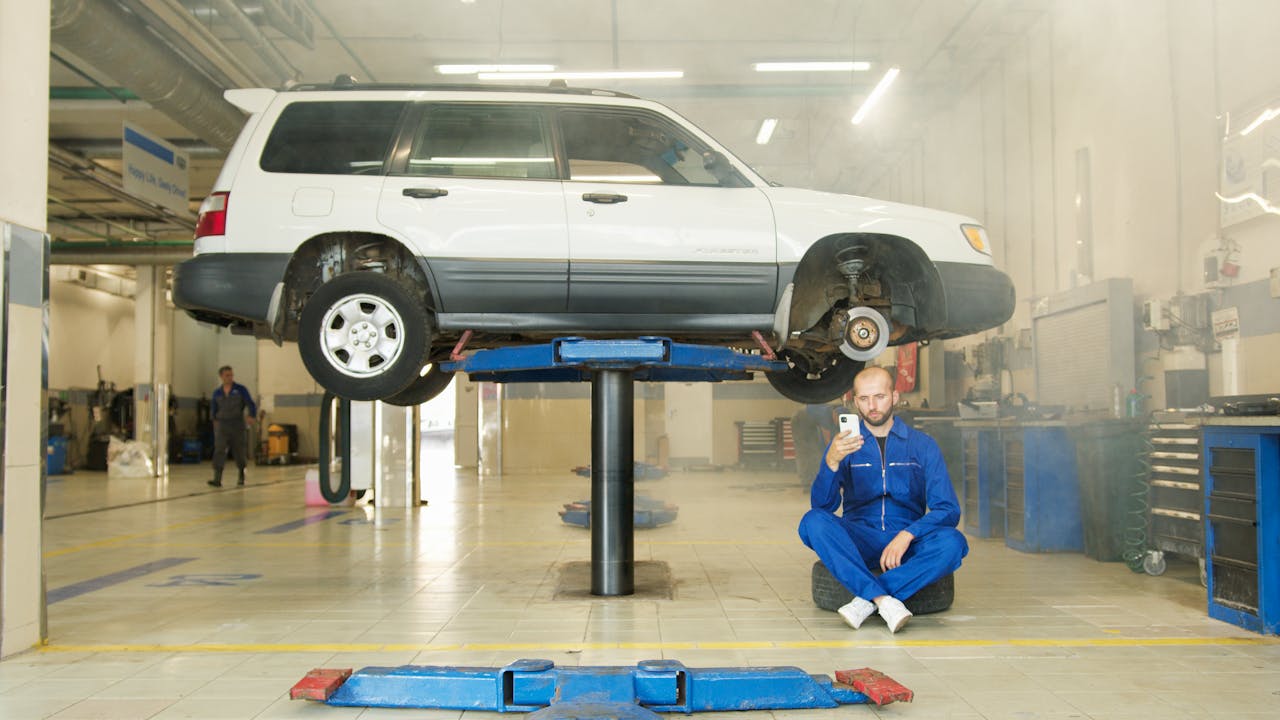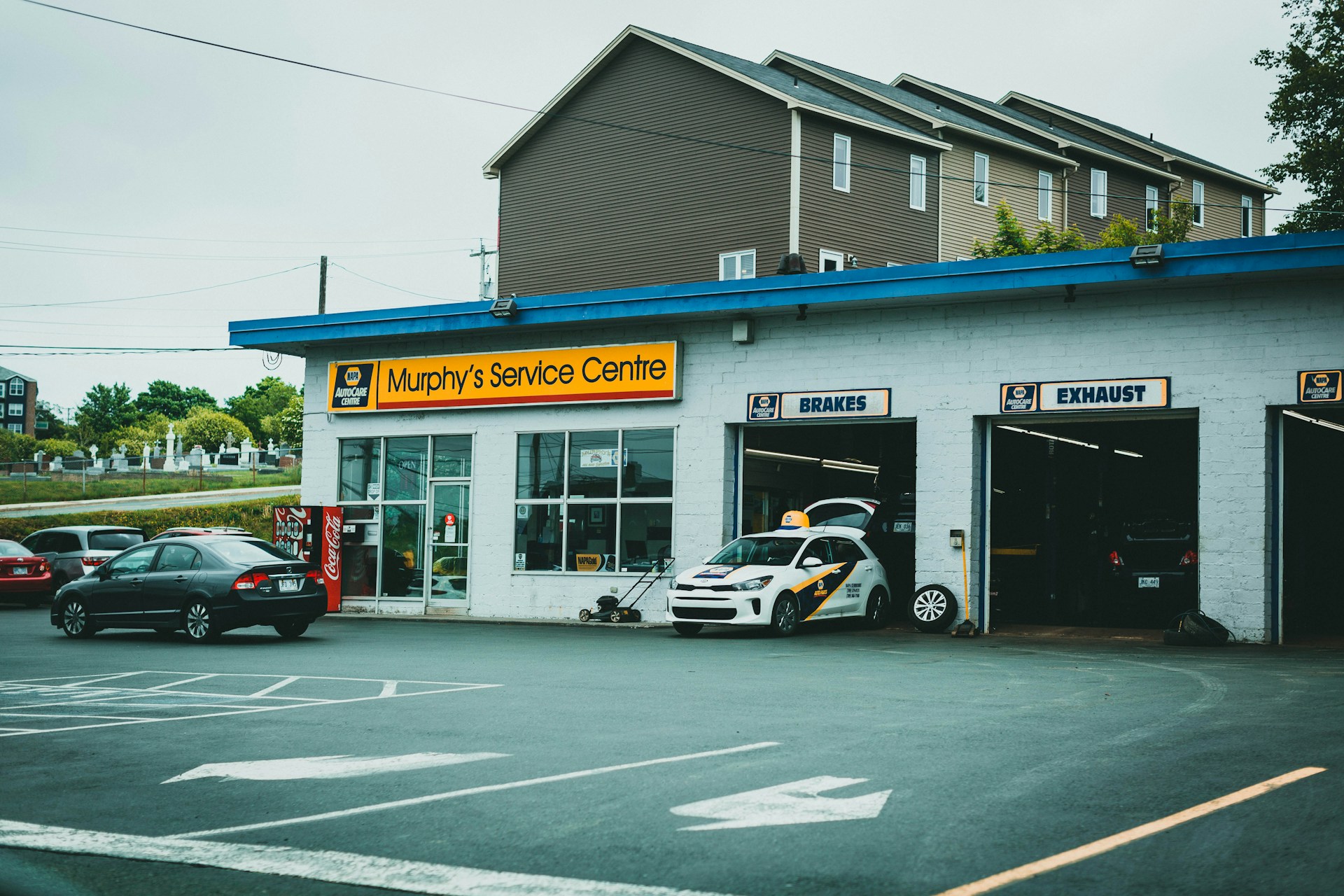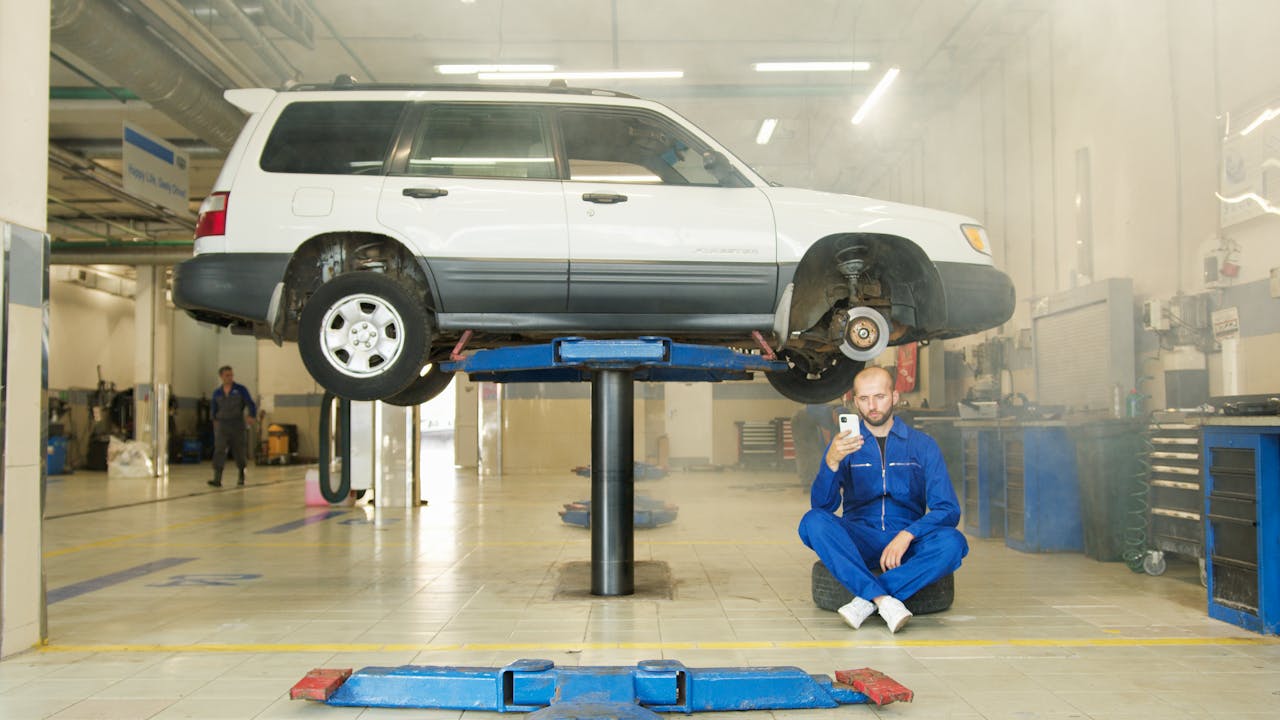Dallas supports approximately 285 active tire shops across the metro area, ranging from single-bay operations to full-service facilities generating millions in annual revenue. This competitive landscape demands strategic construction planning from the outset.
We structure tire shop builders Dallas projects around three foundational elements: comprehensive permit coordination, purposeful shop programming, and streamlined delivery logistics. These pillars shape every project decision from site selection through final inspection.
How Do Dallas Permits, Codes, And Inspections Shape Tire Shop Projects?
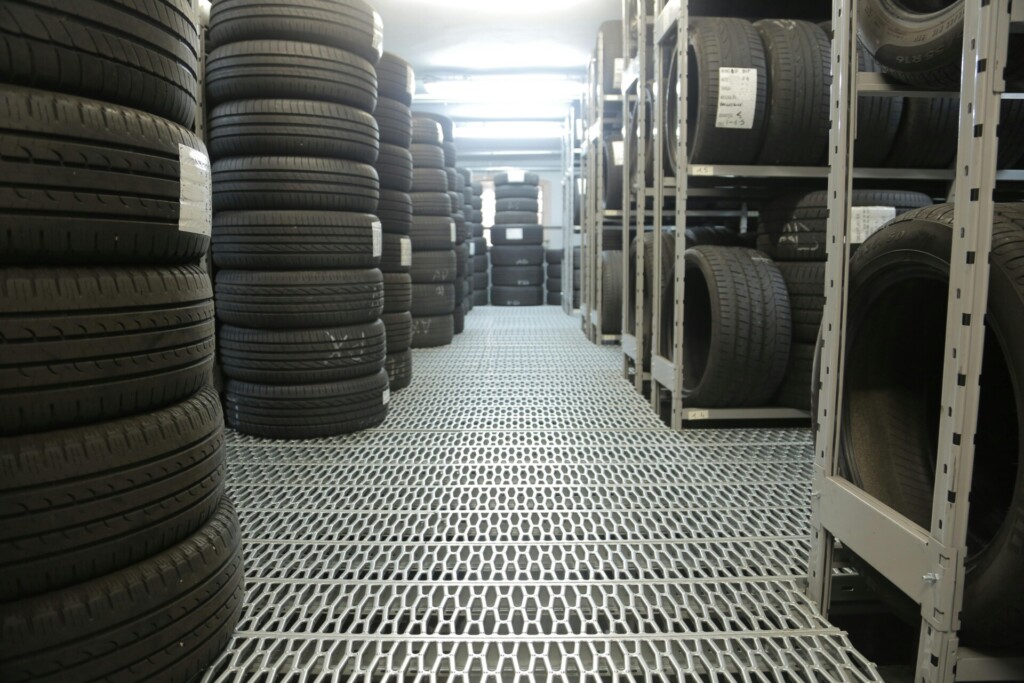
We start every tire shop project with certificate of occupancy requirements. Dallas requires a CO for commercial tire operations, as shown in city records documenting facilities like 6,000 square foot tire shops. The occupancy report process begins early in our construction timeline to avoid delays at project completion.
Certificate Of Occupancy Requirements
Dallas building inspection handles CO applications through their DallasNow system. We coordinate with building officials on use classifications and occupancy loads for tire retail and service operations. The certificate of occupancy validates that the completed facility meets all applicable building codes and zoning requirements.
Processing times vary based on whether the proposed use matches previous occupancy. Same-use applications typically process within 24 hours, while change-of-use reviews can extend to two weeks. We factor these timelines into our project schedules and coordinate CO applications with final inspection readiness.
High-Pile Storage Coordination
Tire storage configurations trigger high-pile storage reviews in Dallas. Permit records show approved installations with specific requirements for storage height, aisle widths, and rack configurations. We coordinate early with Dallas Fire Marshal’s office on storage layouts exceeding standard warehouse heights.
Fire protection systems often include dry pipe sprinkler systems for tire storage areas. Dallas County Fire Code specifies requirements for automatic fire-extinguishing systems based on storage volume and building characteristics. We align system design with Dallas Fire-Rescue requirements before finalizing mechanical plans.
Sign And Banner Permits
Exterior signage requires separate permits through Dallas building inspection. City records show multiple sign permits for tire shops, including temporary banners and flag installations. We coordinate signage applications with storefront design to ensure compliance with zoning district requirements.
Permanent sign permits address mounting, electrical connections, and visibility standards. Temporary banner permits cover promotional displays with specific duration limits. We schedule permit applications to align with construction phases and grand opening timelines.
Specialty Trade Licensing
HVAC and electrical contractors must hold valid TDLR licenses for work in Dallas. The Texas Department of Licensing & Regulation regulates these specialty trades through state-level licensing requirements. We verify contractor credentials and maintain current license documentation throughout construction.
General contractors operate without state licensing requirements in Texas. We verify insurance coverage, request multiple competitive bids, and understand that no state recovery fund or surety bond protections exist for general contracting work. Background checks provide additional due diligence for contractor selection where project requirements warrant additional verification.
What Program And Layout Elements Do Dallas Tire Shops Typically Need?
Dallas tire shops require comprehensive service capabilities that support both quick maintenance and complex automotive repairs. We design alignment bays with proper floor loading capacity and electrical requirements for modern computerized alignment systems. These bays need adequate ceiling height for lift equipment and sufficient width to accommodate full-size trucks and commercial vehicles.
Tire installation and balancing operations demand organized workflow patterns. We position wheel balancing equipment near tire mounting stations to minimize handling time. The layout connects these work zones through clear pathways that prevent bottlenecks during peak hours when multiple vehicles require simultaneous service.
Service Bay Configuration And Equipment Staging
Service bays accommodate tire rotation, repair work, suspension services, and lift kit installations. Each bay requires appropriate electrical service for pneumatic tools, hydraulic lifts, and diagnostic equipment. We maintain 12-foot minimum bay widths to handle oversized vehicles common in the Dallas market.
Equipment staging areas position frequently used tools within easy reach of technicians. Tire repair stations need compressed air access, patch kits, and valve stem supplies. Suspension work areas require additional clearance for component removal and specialized tools for strut replacement and alignment corrections.
Tire Storage And Display Systems
Upper rack storage systems maximize vertical space while maintaining safe access for inventory management. We design racking systems that support heavy tire loads with proper structural connections to building framing. Rack heights consider both storage capacity and employee safety during tire retrieval operations.
Wheel displays showcase premium products and seasonal tire options for customer selection. These displays position near the customer service area for easy browsing during consultations. We coordinate display lighting and product positioning to highlight tire features and brand options effectively.
Customer Areas And Extended Operating Hours
Dallas tire shops often operate weekdays from 8 AM to 7 PM with Saturday hours, requiring appropriately sized waiting areas and restroom facilities. We calculate occupancy based on peak service capacity and typical customer dwell time. Comfortable seating arrangements accommodate families and individuals waiting for service completion.
Wi-Fi access and charging stations meet modern customer expectations during extended wait times. We position these amenities near comfortable seating with good sightlines to service areas. Climate control systems maintain comfortable conditions throughout extended operating hours, particularly during Dallas summer heat.
State Inspection Integration
Shops offering Texas state vehicle inspections require dedicated inspection lanes with specific equipment and access requirements. These lanes need appropriate lighting, floor space for vehicle positioning, and storage for inspection supplies and documentation.
Inspection stations must maintain separation from general repair areas while providing efficient vehicle flow. We design inspection bay access that prevents interference with tire service operations during busy periods. Equipment requirements include brake testing areas, emission testing capability, and proper documentation storage.
Traffic Flow And Parking Configuration
Safe vehicle circulation patterns separate customer parking from service bay access. We design entry and exit routes that prevent conflicts between incoming customers and vehicles leaving service bays. Clear sight lines help drivers navigate the facility safely during peak traffic periods.
Customer parking areas provide adequate spaces for peak occupancy while maintaining emergency vehicle access. We consider Dallas parking regulations and ADA compliance requirements during layout planning. Service vehicle staging areas allow completed work to queue without blocking active service bays.
How Should Builders Plan Dallas Tire Shop Remodels And Rollouts?
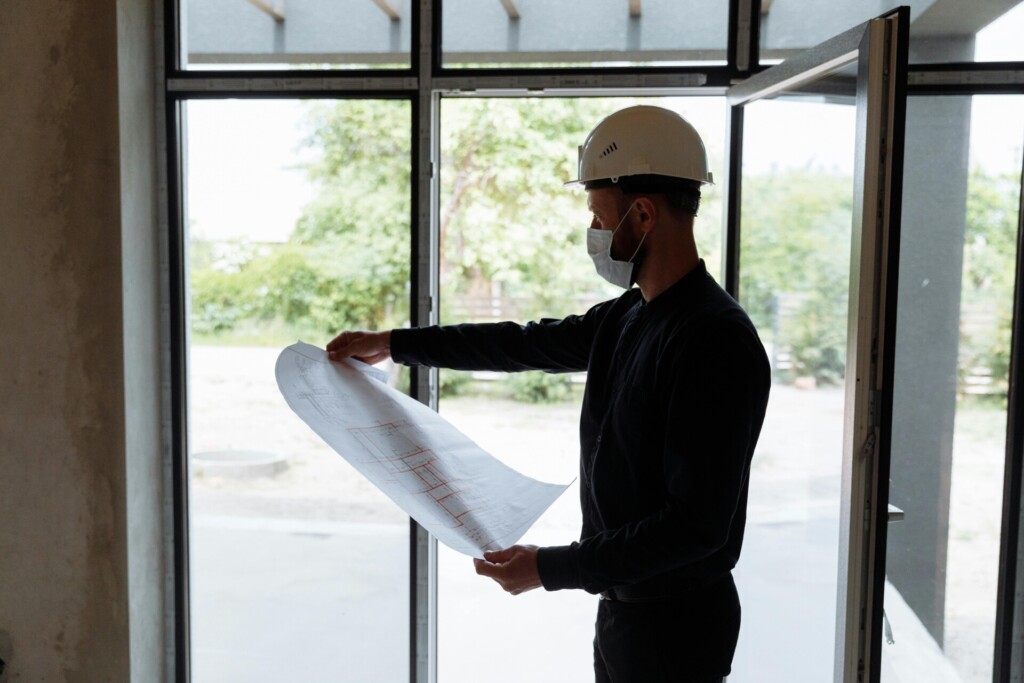
Dallas-area tire store remodel Dallas projects typically involve steel framing and metal siding work on building exteriors. We handle interior handyman-type updates alongside these structural improvements. This dual approach maximizes project efficiency while controlling costs.
Effective crew sizing matters for these scopes. We deploy carpentry crew configurations of four workers: two experienced carpenters paired with two helpers. This ratio provides the right skill mix for both exterior steel work and interior finish tasks. The crew size allows us to move efficiently through multi-location projects without overwhelming smaller retail spaces.
Contract Terms And Project Phasing
Standard insurance requirements apply to all tire shop remodels we manage. We accept deposits from property owners with payment balances structured on net 45 terms. This arrangement aligns cash flow with project completion milestones and material deliveries.
Multiple stores often move through the permitting queue simultaneously during multi-store rollout projects. We coordinate phasing to match permit release dates with material lead times. Early planning prevents delays when permits arrive ahead of schedule or materials face extended delivery windows.
Quality Control And Inspection Coordination
Each location requires its own punch list to track completion items. We standardize construction details across sites to reduce variation and speed up the installation process. Consistent details also simplify inspection scheduling and reduce potential rework.
We schedule inspections in batches when managing multiple Dallas suburbs locations. This approach reduces coordination overhead and ensures consistent review standards across the entire rollout. Batched scheduling works particularly well for final inspections where timing flexibility exists.
Where Does Market Context Guide Site Selection And Design In Dallas?
Business directory data reveals 285 tire shop businesses in Dallas, with card revenue ranges typically spanning $500k to $5M annually. This market density creates clear patterns we leverage when evaluating potential sites and designing facilities that compete effectively.
The strongest tire shop clusters concentrate along major traffic corridors. Harry Hines Boulevard shows multiple successful operations, including locations at 11273, 10430, and 10529 addresses. South Buckner Boulevard hosts shops at 2405, 3949, and 2104 addresses with revenue ranges consistently hitting the $1M-$5M bracket.
West Davis Street, South Carroll Avenue, and Inwood Road form additional commercial corridors where established tire shops generate substantial revenue. These patterns indicate high vehicle traffic, accessible parking, and strong visibility that translates directly into customer volume and sales performance.
Dallas permits document tire shop uses within office showroom/warehouse building types, not just standalone retail structures. This flexibility allows for varied warehouse-to-sales floor ratios depending on the business model. High-volume installation shops require larger service bay areas, while tire sales operations emphasize display space and customer parking.
We analyze these market patterns to inform site selection decisions around access and visibility. High-traffic arterials provide drive-by visibility essential for attracting customers, while secondary access routes accommodate delivery trucks and tire shipments without disrupting customer flow.
Signage allowances vary by corridor and zoning district. The concentration of successful tire shops along established commercial strips suggests favorable signage regulations that support business visibility. We coordinate with local signage requirements early to maximize branding opportunities within permitted limits.
Loading access becomes critical when designing for tire inventory management. Successful shops balance customer parking with service bay access and delivery routes for tire shipments. The variety of building types hosting tire shops in Dallas permits allows flexibility in configuring these operational elements to match site constraints and business requirements.
Conclusion And Next Steps
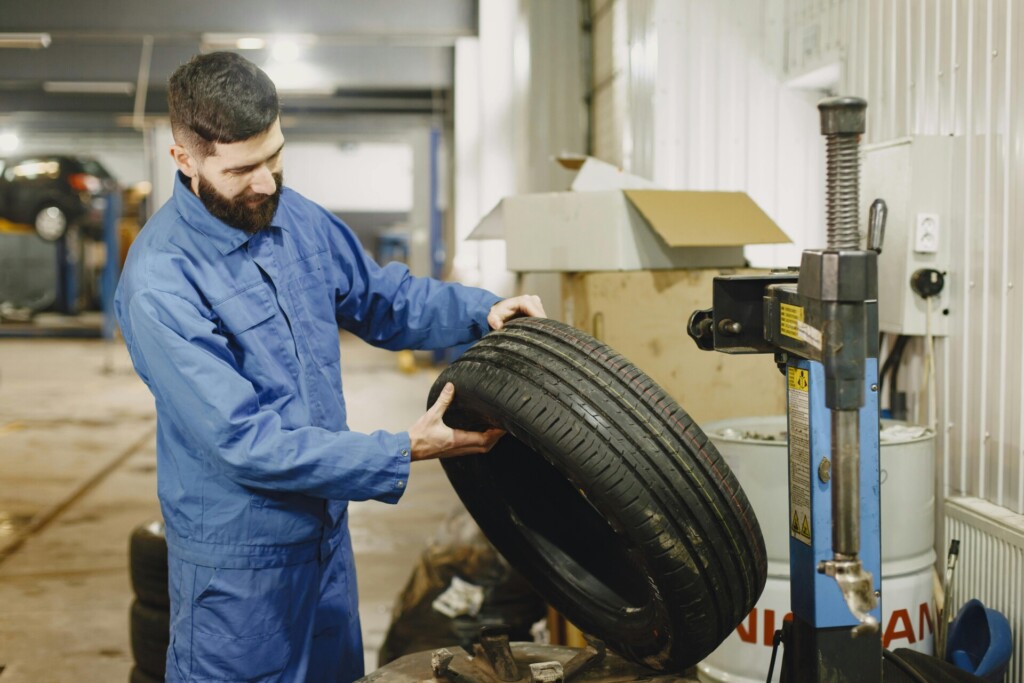
Building successful tire shops in Dallas requires careful orchestration of three critical areas: regulatory compliance, program design, and execution quality. We approach each project by securing the certificate of occupancy early, coordinating high pile storage requirements with fire protection systems, and ensuring all sign permits align with local ordinances. This foundation prevents costly delays and keeps projects moving through the approval process efficiently.
Project delivery hinges on verification of TDLR subs, comprehensive bid comparison across multiple contractors, and documented insurance coverage before breaking ground. We standardize construction details across multi-store rollouts to maintain consistency while adapting to site-specific conditions along Dallas corridors. Clear scopes, net-45 payment terms, and phased permit coordination ensure smooth execution from groundbreaking to grand opening.
Ready to move forward with your tire shop project in Dallas? Contact EB3 Construction to discuss your specific requirements and timeline.

